When you decide to bring a dog into your family, there are so many things to consider. The following is a list of the most common mistakes new pet owners make. Prepare yourself by knowing the ins and outs of pet parenting! Fitdog teamed up with Dr. Sabrina from Vetted Pet Care to highlight the five most common mistakes that we see at daycare and by veterinarians:
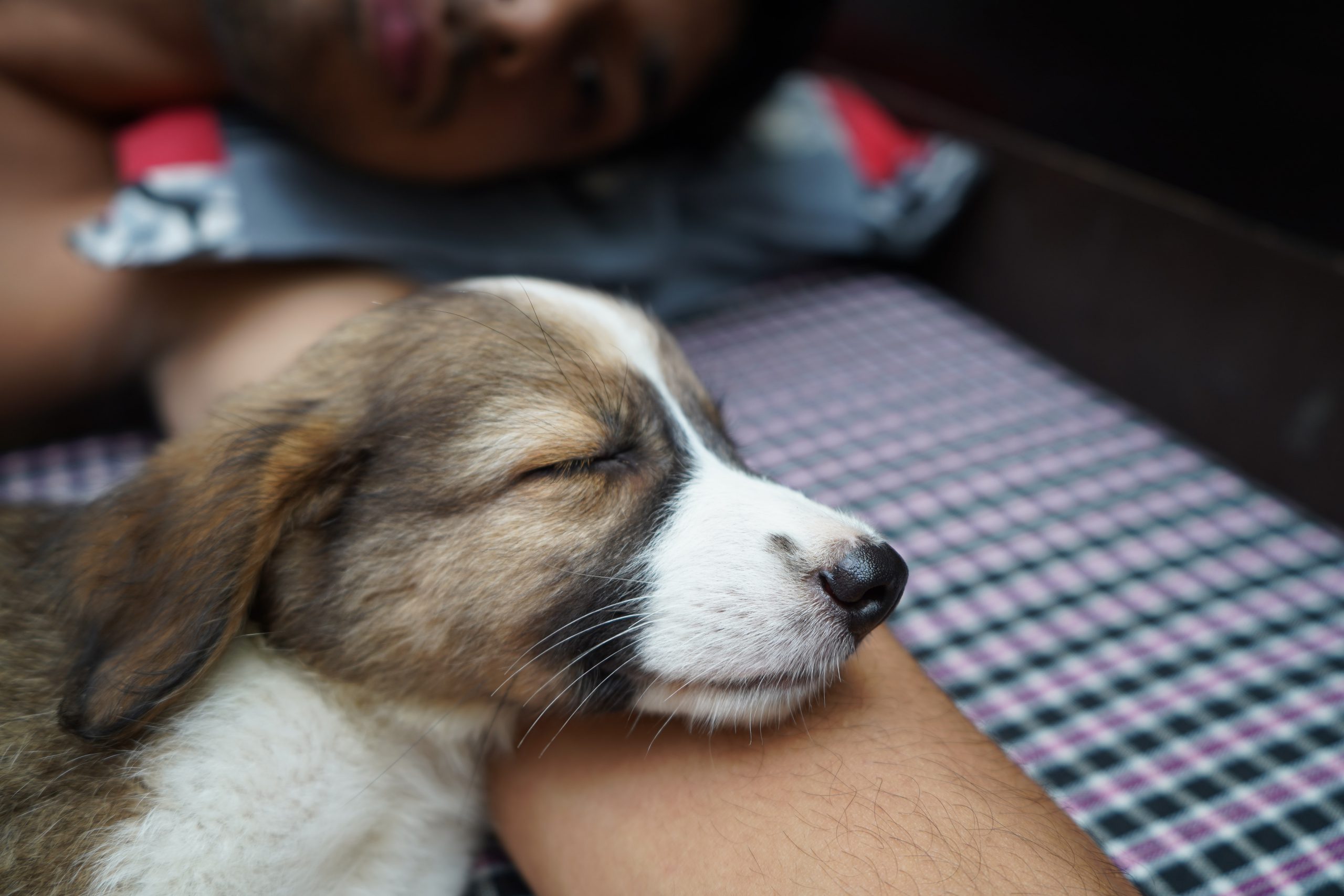
Five Most Common Mistakes New Pet Owners Make
Not asking for copies of the medical and vaccination records.
You wouldn’t drive a new car off the lot without getting the title first. The same thing goes for getting a new dog. Make sure you ask your shelter, breeder, or rescue group for complete copies of all your dog’s medical records.
According to Dr. Sabrina, “any previous vaccination records are of utmost importance.” You will need to bring these records to your primary vet. You’ll also want to keep them handy for any future dog care services such as boarding, daycare, or grooming.
Unfortunately, not all breeders or shelters are totally honest when they say the dog has received all their vaccines. And this is why obtaining all vaccination records is absolutely necessary.
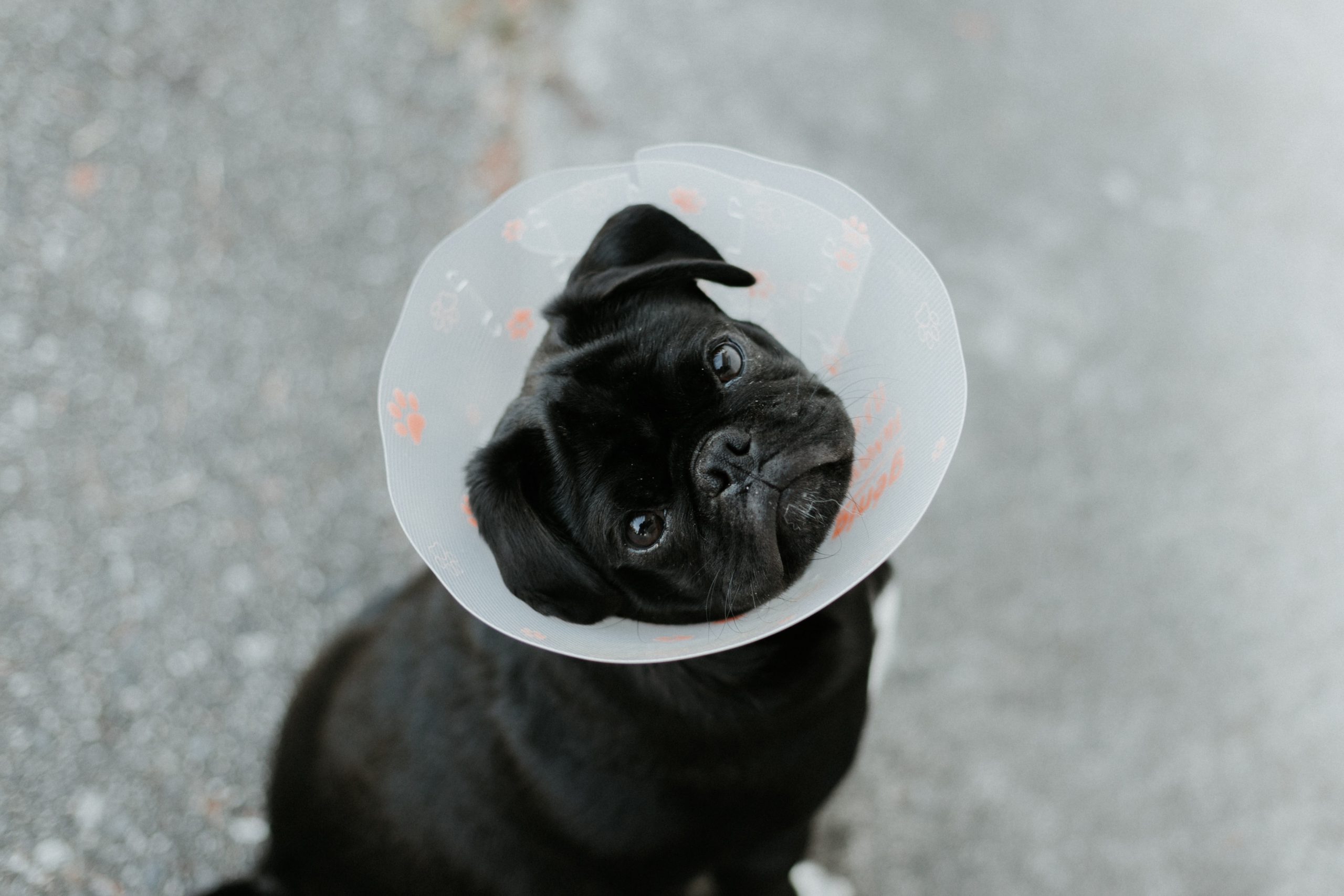
Skipping the first-time vet visit.
“We will commonly see newly adopted pets with gastrointestinal upset (such as loose stools, nausea/vomiting, etc.),” says Dr. Sabrina. “This can come about for several different reasons. A sudden change or alteration in the pet’s diet, contact with potential parasites or pathogens the pet may not have been exposed to previously, or simply stress-related colitis due to the multitude of changes that come with being in a new home with a new adoptive family.”
Many breeders and rescue organizations claim dogs have had fecal exams and are in good health, but the reality is you just don’t know until you’ve had the dog checked out.
Don’t wait until your dog gets sick to take them to a vet– you could dodge a cornucopia of health problems by simply getting your dog initially checked up and familiarized with your vet.
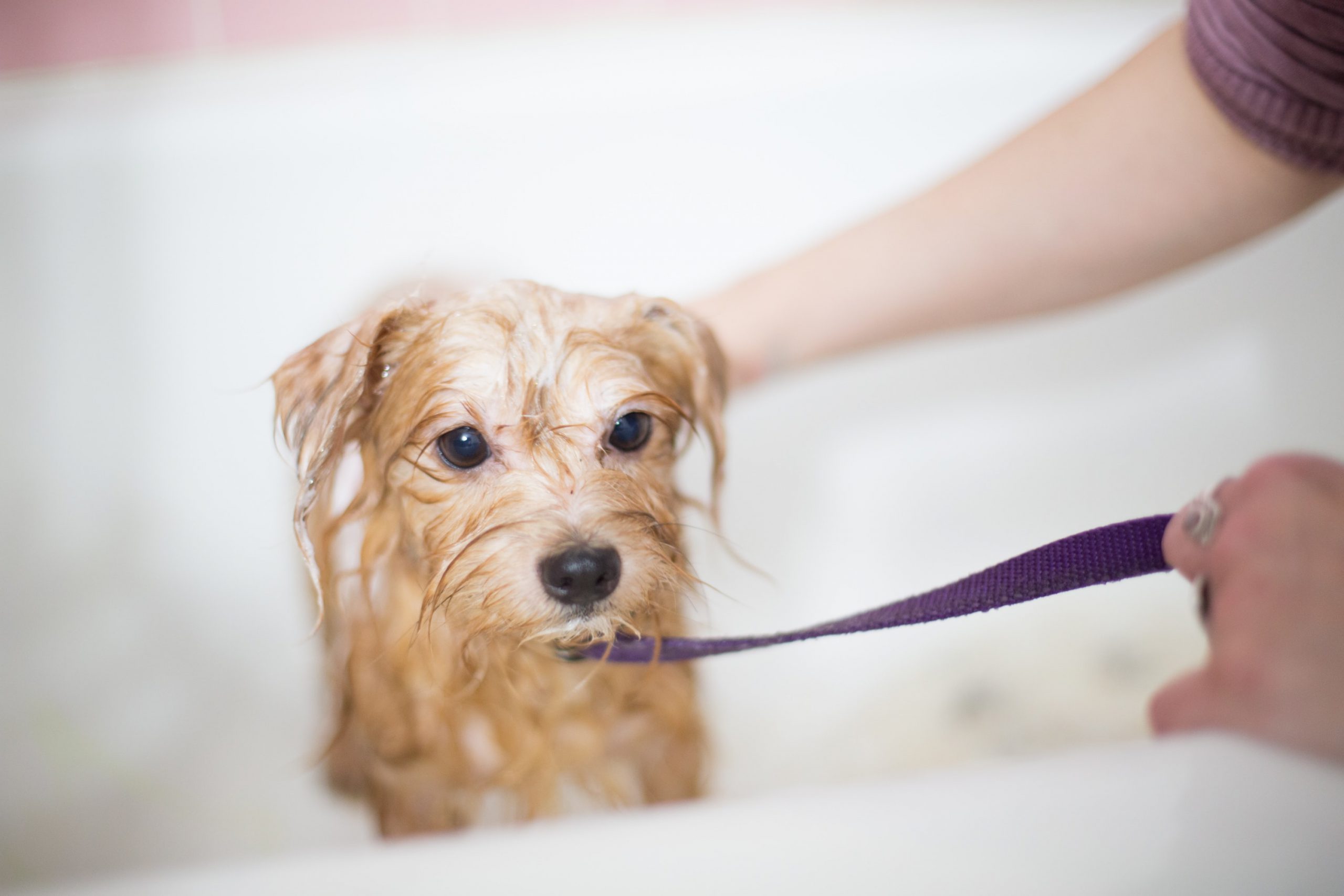
Not seeking professional grooming.
It’s easy enough to stick your dog in the bathtub, right? Eh, not so. There’s more to a dog’s groom than just a bath. Nail clipping can make even the calmest dog squirmy, and anal gland expression is a task best left to the professionals.
Dr. Sabrina points out how grooming “provides a good opportunity to combine the provision of good hygiene care with human socialization as well.”
Grooming is a vital part of maintaining your dog’s health and wellness, and so following through with a regular grooming routine is also important.
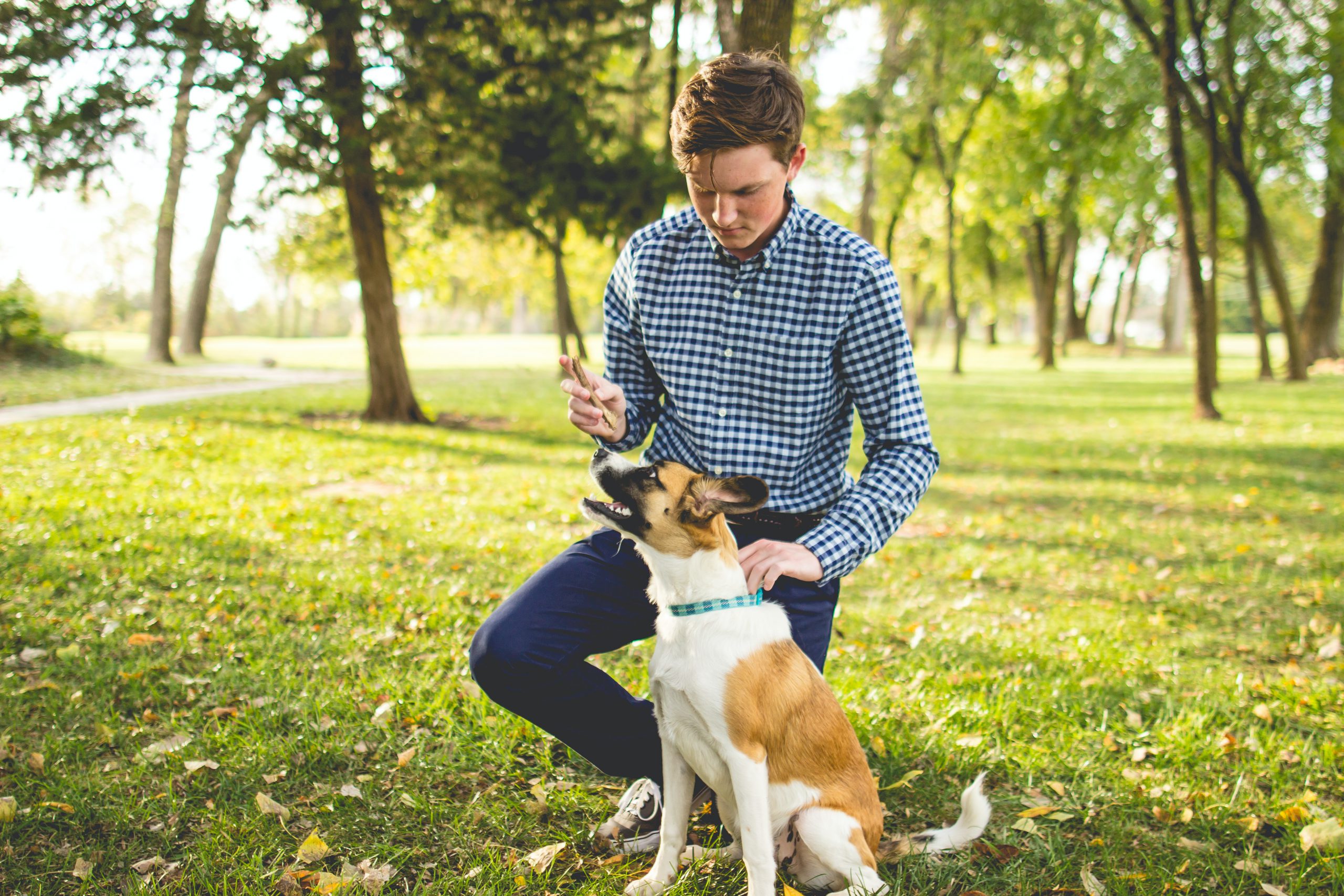
Not taking enough time to bond with your dog.
It should go without saying that if you are getting a new dog, you have to establish a bond with them off the bat– it’s a big adjustment for both of you!
We’ve had people drive straight to Fitdog immediately following their adoption. This is a big no-no. You must spend some time with your dog to establish a bond of trust before dropping them off with strangers for a long day.
We recommend planning to adopt your dog on a Friday afternoon. This way, you both have the weekend to get to know one another before jumping straight into your regular routine. And this might include introducing them to a new pet care provider.
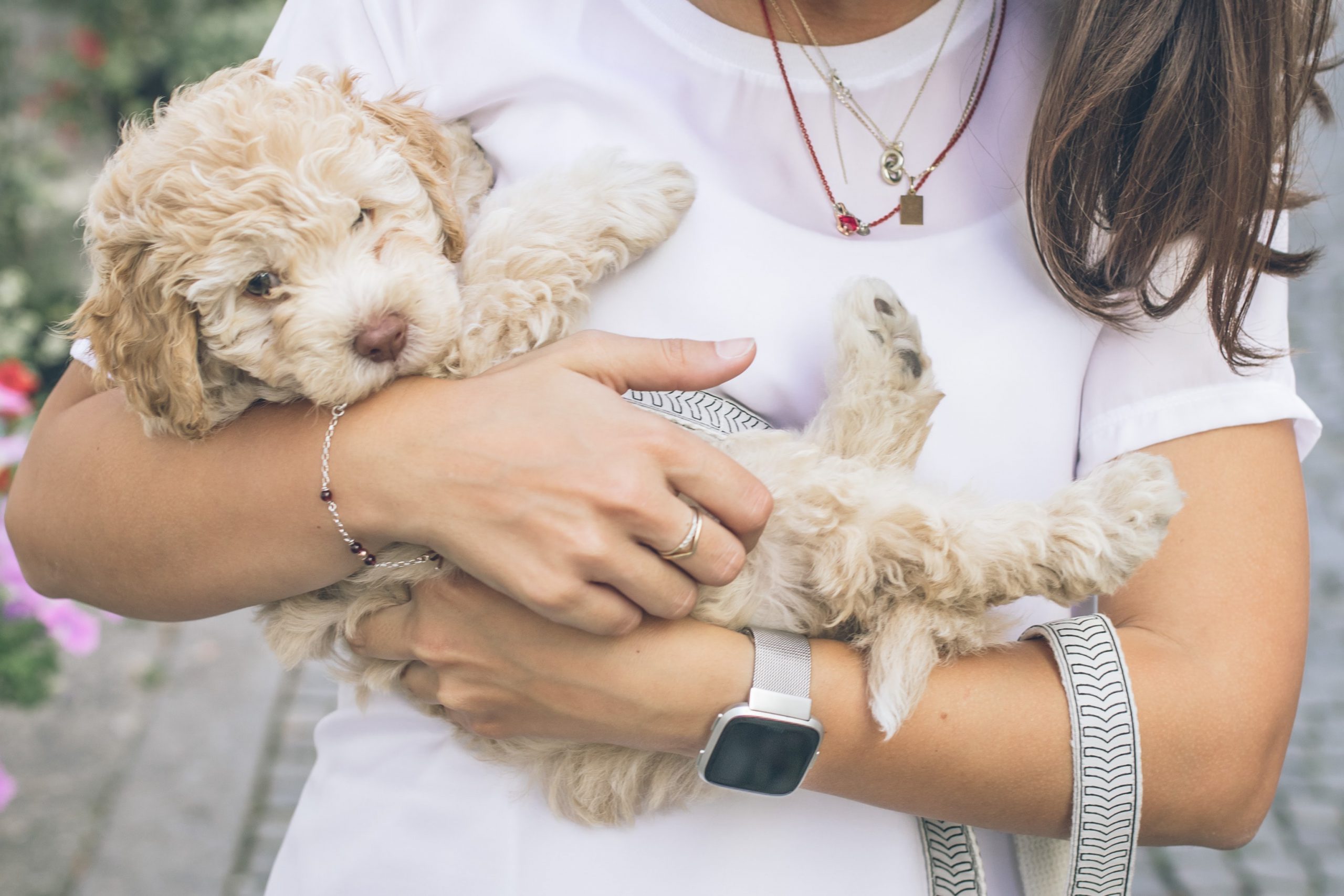
Not doing research on breed-specific needs.
“It is important to be cognizant of any health issues your pet may be predisposed to. This way, you and your veterinarian can create the most personalized preventative health care plan for your new pet going forward,” says Dr. Sabrina. These needs include diet, grooming, and exercise. Many dog owners are surprised to learn, for instance, that pugs sometimes have trouble breathing or that boxers are prone to enlarged hearts.
“In addition, regardless of breed, an individual pet’s physical conformation or prior medical history may also increase or decrease their likelihood of developing certain conditions,” she says.
Taking time to understand your dog’s needs and learning which symptoms to look out for will better prepare you if certain health issues arise.
Overall, Dr. Sabrina recommends you “have your pet examined by a veterinarian within the first 7 days” of adoption. This is a sure-fire way to get your pet’s new life off to a healthy start. Plus, it prepares you for any preventative measures you may need to take. Here’s wishing you and your new pet many happy, healthy days ahead!